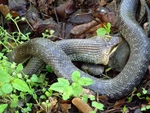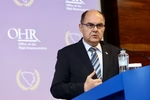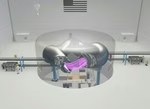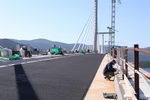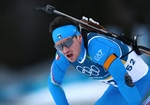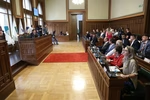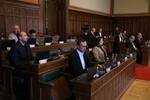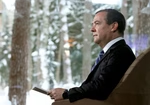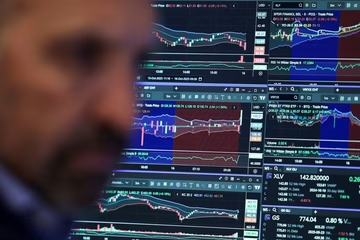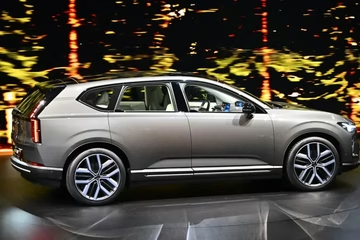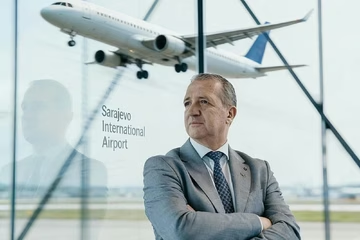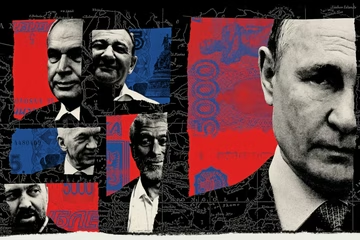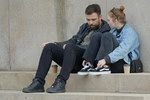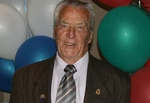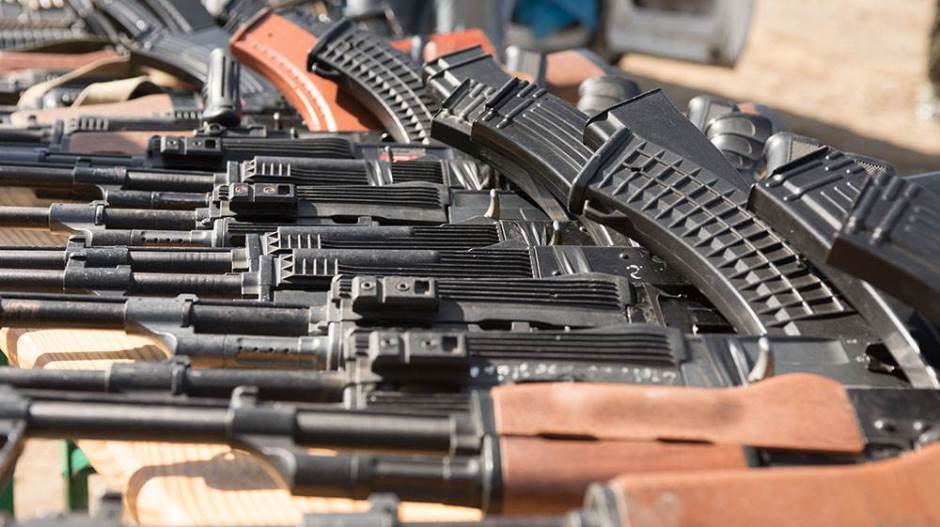
Last month, Austrian police made a remarkable discovery. In a raid on a house in the town of Baden, they found an arsenal of weapons and 1,200 kilograms of ammunition -- as well as Nazi paraphernalia and a large amount of gunpowder.
Altogether some 50 weapons, including submachine guns and pump-action rifles, were seized. According to a police statement, the house belonged to a 53-year-old man who is "suspected of national socialist Nazi activities," including sharing numerous files on Internet forums.
Interior Minister Karl Nehammer said of the raid: "The consistent action against right-wing extremism is not only part of the historical responsibility, but also a clear advocacy of our democratic coexistence in Austria."
It wasn't the first action against alleged neo-Nazis in Austria this year. In July, police seized automatic weapons and hand grenades in coordinated raids against a biker gang whose leader planned to establish a "militia of the respectable" that would "overturn the system."
Support for Nazism is a criminal offense in Austria. The most prominent neo-Nazi figure is Gottfried Kuessel, who was sentenced to a nine-year jail term in 2013 for propagating Nazism online. It was his second conviction.
Bernhard Weidinger, who studies the far right at the Documentation Archive of the Austrian Resistance in Vienna, says that the criminalization of Nazi ideology has ensured that it is neither particularly strong nor organized.
"But what we do have is a very high frequency of weapons finds," he told CNN.
Neo-Nazi activity in Europe is frequently associated with biker gangs, organized crime and football fans. In Austria, a group called the Immortal follow the club Rapid Vienna, sometimes displaying the Reich War flag at matches. In Italy, fan groups known as Ultras adopt fascist slogans and monikers.
Austrian neo-Nazi activists frequently connect with similar groups in Germany, according to authorities, because they perceive themselves as part of a greater German Reich. After the seizure of another arsenal of weapons late in 2020, Interior Minister Nehammer spoke of links between the five arrested individuals and far right cells in Germany, as well as connections with organized crime and drug trafficking.
In Austria, as elsewhere in Europe, the neo-Nazi scene includes virulent strains of both anti-Semitism and anti-Muslim racism.
In January this year, an Austrian rapper by the name of Mr Bond was arrested and charged with "producing and broadcasting Nazi ideas and incitement to hatred." One of his neo-Nazi songs was used by a man as he live streamed a deadly attack on a synagogue in Germany in 2019.
That attack came a year after a third (35%) of Austrians told CNN that Jewish people were at risk of racist violence in their country. Nearly half (45%) said anti-Semitism was a growing problem in their country. The findings were part of a ComRes/CNN survey exploring anti-Semitism in seven European countries.
In Austria, 12% of people aged 18 to 34 said they had never heard of the Holocaust. Austria also had the highest number of people in the survey -- four out of 10 adults -- who said they knew "just a little" about the Holocaust. And a third of Austrians (32%) said Jewish people have too much influence on business and finance around the world, echoing a long-standing anti-Semitic trope.
The findings came from a ComRes survey for CNN of 7,092 adults online in seven countries between September 7 and September 20, 2018. Data was weighted to be representative of each country based on age, gender and region.
Austria is grappling with the legacy of anti-Semitism in other ways. For almost a decade, a statue in Vienna has been at the center of that troubled history. It is of Karl Lueger, the city's mayor at the beginning of the 20th century. Lueger exploited anti-Jewish feeling in his bid for office, emphasizing Christian and Germanic supremacy, and was much admired by Adolf Hitler.
The bronze statue, four meters high, has been defaced but still stands in a prominent position in a Vienna square. City authorities decided this month that it would remain in place but be set in context.
One group that took up the cause of protecting the statue was the Identitäre Bewegung Österreich (IBO) -- the Austrian branch of a European movement that describes itself as Identitarian. Its leader, Martin Sellner, visited the statue after it was daubed with the word "Shame."
Sellner has become a leading light in the Identitarian movement which opposes mass migration and wants Europe to have a homogenic white and Christian identity. They see this identity being sold out by political elites committed to multiculturalism.
Austrian authorities prosecuted him and 16 others using anti-Mafia laws in 2018, accusing them of hate speech and criminal association. After a high-profile trial they were acquitted.
More damaging for the Identitarians in Austria was the revelation that they had received a donation from the man who carried out the attacks on mosques in Christchurch, New Zealand, in 2019, and that Sellner had been in touch with him.
Sellner said in a video statement that he had nothing to do with the attack and said the money would be given to charity. Even so, Bernhard Weidinger told CNN, the connection seriously damaged the IBO in the eyes of much of the public.
Analysts make a distinction between traditional neo-Nazis --- whose activities are based on violence and crime --- and the emerging Identitarian groups, which are political. Besides Sellner and the IBO in Austria, they include Génération Identitaire in France and the Neue Rechte (New Right) in Germany.
Read the full story on CNN.
Kakvo je tvoje mišljenje o ovome?
Učestvuj u diskusiji ili pročitaj komentare





 Srbija
Srbija
 Hrvatska
Hrvatska
 Slovenija
Slovenija









